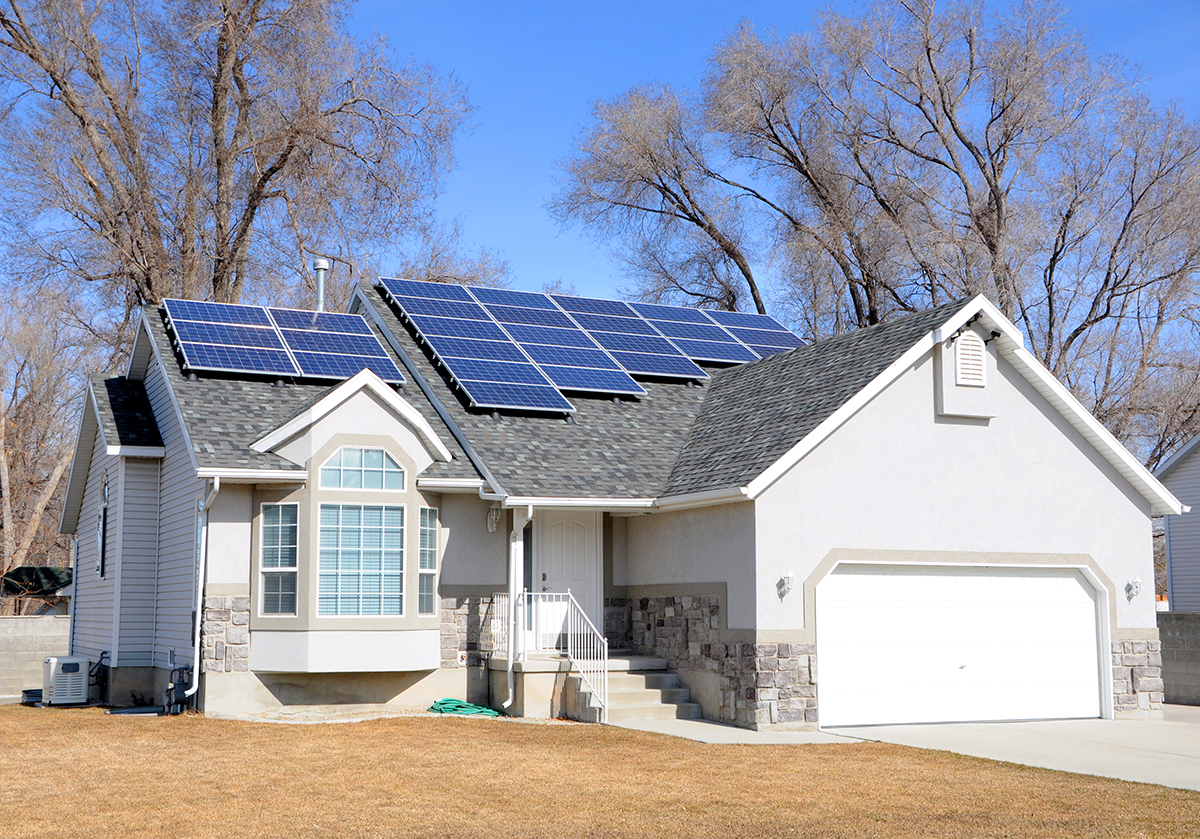Considering Solar Panels?

Interest has increased in customer-installed solar panels or battery storage in Georgetown. These installations are called Distributed Energy Resources. If you are considering solar panels or battery storage for your home, here are some important factors to consider before making a significant financial investment.
System costs
Cost factors: The cost of a solar installation varies, depending on the system size, specific product, and site details. Many factors affect the price per watt, including the quality of the modules, the aesthetics of the array, the type of inverter(s), the complexity of your roof, and the size of the system. If you are interested in discovering more detailed information with potential solar costs and savings, NREL’s PVWatts calculator allows you to create your own solar scenarios.
Cost ranges: According to NREL (National Renewable Energy Laboratory – Department of Energy) the national average cost of residential solar system installed is $2.71 per kilowatt. Residential systems typically range from 4 to 7 kilowatts. Based on these cost estimates, a 5-kilowatt system costs $13,550 before the Investment Tax Credit. Be sure you are fully aware of the expected payback after tax incentives or rebates. If the system is financed, then the break-even period is longer.
Tax credits: The Federal Investment Tax Credit (ITC) allows eligible homeowners who purchase solar energy systems to claim an income tax credit. The City encourages customers to consult with a tax professional to make sure the federal tax credit is still available, and they are eligible.
Panels are not backup power: Residential solar installation does not keep the lights on when there is an outage or if the grid is down. It is not a backup system unless the customer has a battery backup, which requires more up-front costs.
City rates and fees
Please review City of Georgetown’s DER Interconnection Policy, Net Energy Metering Policy and Permitting Requirements as part of your due diligence. Some of the important points to consider:
10 kilowatt maximum size: The maximum solar system allowed to interconnect to the City of Georgetown’s electric grid is 10-kilowatts DC.
Fees: The typical costs of interconnection require an application inspection fee of $340 and an installation inspection fee of $605, totaling at least $945 in City review fees. Some installations may require additional studies and costs. Please review the DER Interconnection Policy to fully understand the process of interconnection and the costs.
Residential and small commercial: The net energy metering program is limited to residential and small-commercial customers with solar systems of 10-kilowatts DC or smaller. The program allows excess energy generated by solar panels to be sold back to the electric utility. Please review the net energy metering rate program to fully understand the rate program and the limitations.
Received energy credit: The excess energy from the solar system sold back to grid receives a credit of approximately 5.3 cents per kilowatt-hour in 2022. This credit is calculated annually and subjected to change. The rate is based on average electric wholesale costs on the Texas ERCOT grid in a given year.
Base rate: The City of Georgetown energy bill currently has a minimum base rate of $24.80 per month for residential customers, so a customer’s electric bill will never be zero contrary to what a solar installer may promise. The base rate includes fixed costs to operate and maintain the local grid infrastructure.
Installer cost estimates
Rate assumptions: The installation proposals you receive from the solar installers often assume an increase in the utility rates over time. While some of these proposals use the national average, this may not reflect your local rates. If other factors remain the same, the proposal using an aggressive utility rate escalator will show healthier financial predictions than a proposal that uses a conservative estimate. Always find out the basis for the utility rate escalator.
Other cost assumptions: In general, proposals with a high system price per watt, high production estimate, or high utility rate escalator warrant further review and questioning by you. The installer should be able to explain why their proposed solar system supports these higher estimates. This research will ultimately lead to you hiring a good solar installer and receiving a system that will perform to your expectations.
Package deals: Some installers may offer a package deal with other upgrades, such as HVAC equipment, water heaters, insulation, or radiant barriers. It is a good idea to compare the costs of the package deal with bids for these items individually from other contractors. Package deals may end up driving up the overall cost for solar installations.
Before you sign the contract
Look at the details: Contracts are complex documents that are hard to read. To avoid surprises and disputes later, read and understand your contract before signing it. Some critical contract elements you should ask about include cancellation windows, specified installation timelines, and warranties.
Review the warranty: A solar system consists of solar panels, the mounting mechanism that attaches the panels to your roof or the ground, the electric wiring to your electric service panel, and one or more solar inverters that convert DC electricity from the panels to AC electricity used in your home. Different manufacturers make the solar system components and they may have different warranties, which generally last 10 to 25 years. Be sure to understand your warranties for both installation labor and major components. Who is responsible for labor warranty and who is responsible for replacement of a failed component covered under warranty?
Licensed installer: Texas law requires solar installers or anyone offering to install a solar system on a home or business to have a Texas Electrical Contractor’s License (TECL) from the Texas Department of Licensing and Regulation (TDLR). The company’s license must be clearly written on all proposals, contracts, invoices, and business cards. Even if the company that prepared your proposal will be using subcontractors for labor, they still must be a licensed electrical contractor.
Third party companies: There are some third-party marketing companies offering a solar system. Please be careful with these offerors. For a solar contract to be valid in Texas, the company you sign a contract with must be the same company that prepared your solar proposal and acquires the permits from the City of Georgetown for your installation. Although it is not a statewide requirement, strongly consider a contractor who is NABCEP PV Installation Professional certified.
Find a contractor: Use the TDLR website to search for your contractor and read the law about your electrical contractor’s responsibilities.
Understand the installation process: The City of Georgetown recommends customers to refer to this webpage prior to making a decision to install in order to truly understand the risk and rewards of a DER system from the City perspective. The City encourages customers to inform themselves of the interconnection process and net energy metering before making this investment. Customers also may contact the City at customercare@georgetown.org or at 512-930-3640 for any questions regarding your installation.
Helpful resources
These resources may be helpful to you as you consider and research a solar panel or storage battery system.
Solar Energy Technologies Office: Solar Photovoltaic Technology Basics
Texas Solar Energy Society: Frequently Asked Questions
National Renewable Energy Laboratory: PVWatts Calculator








